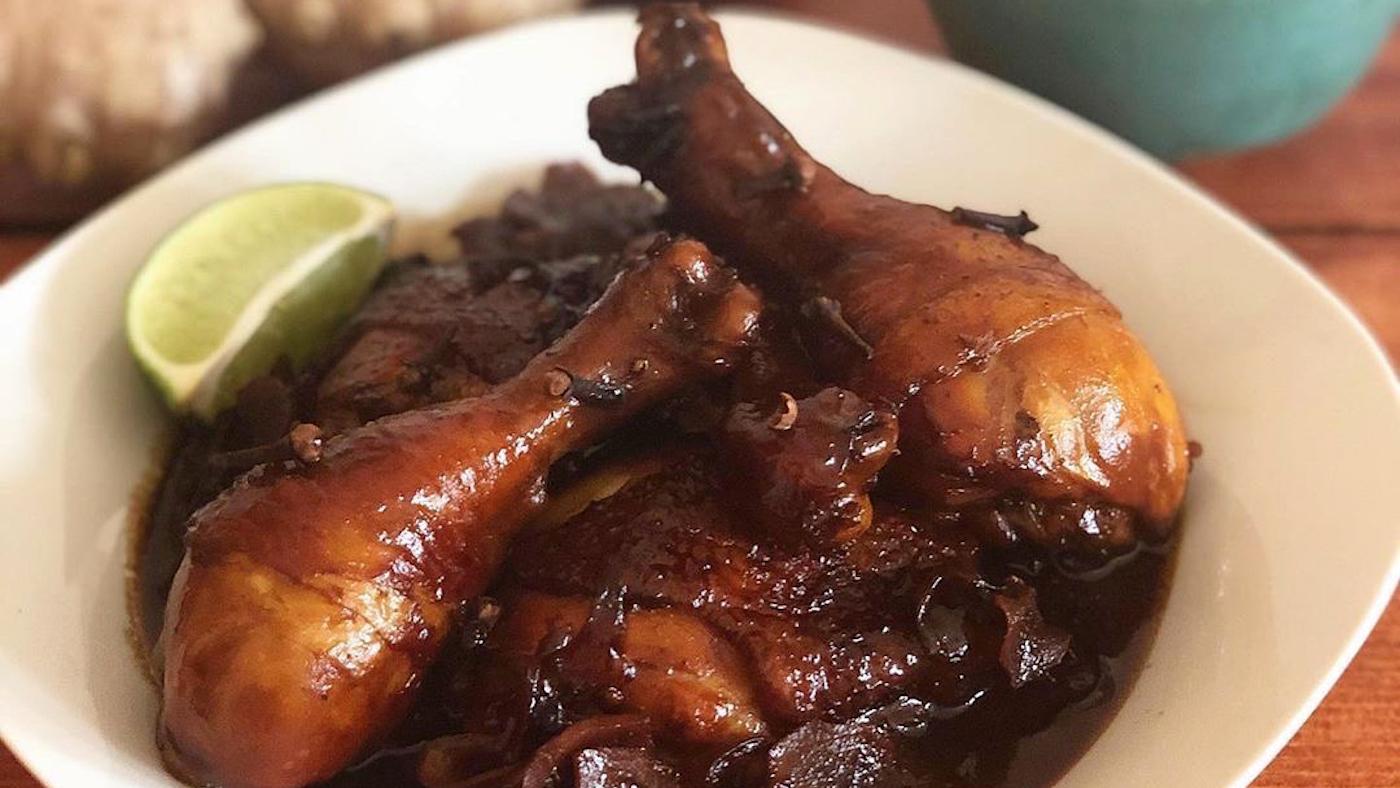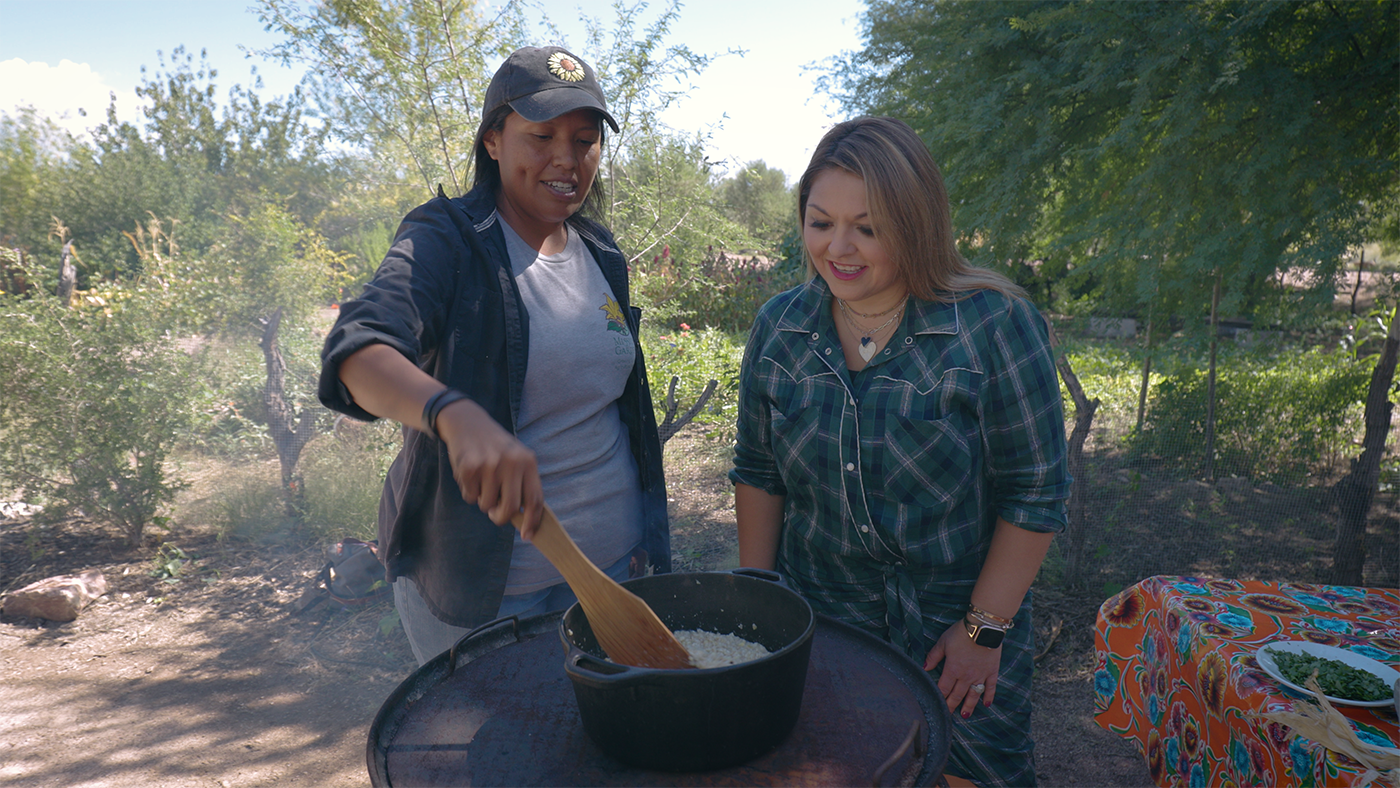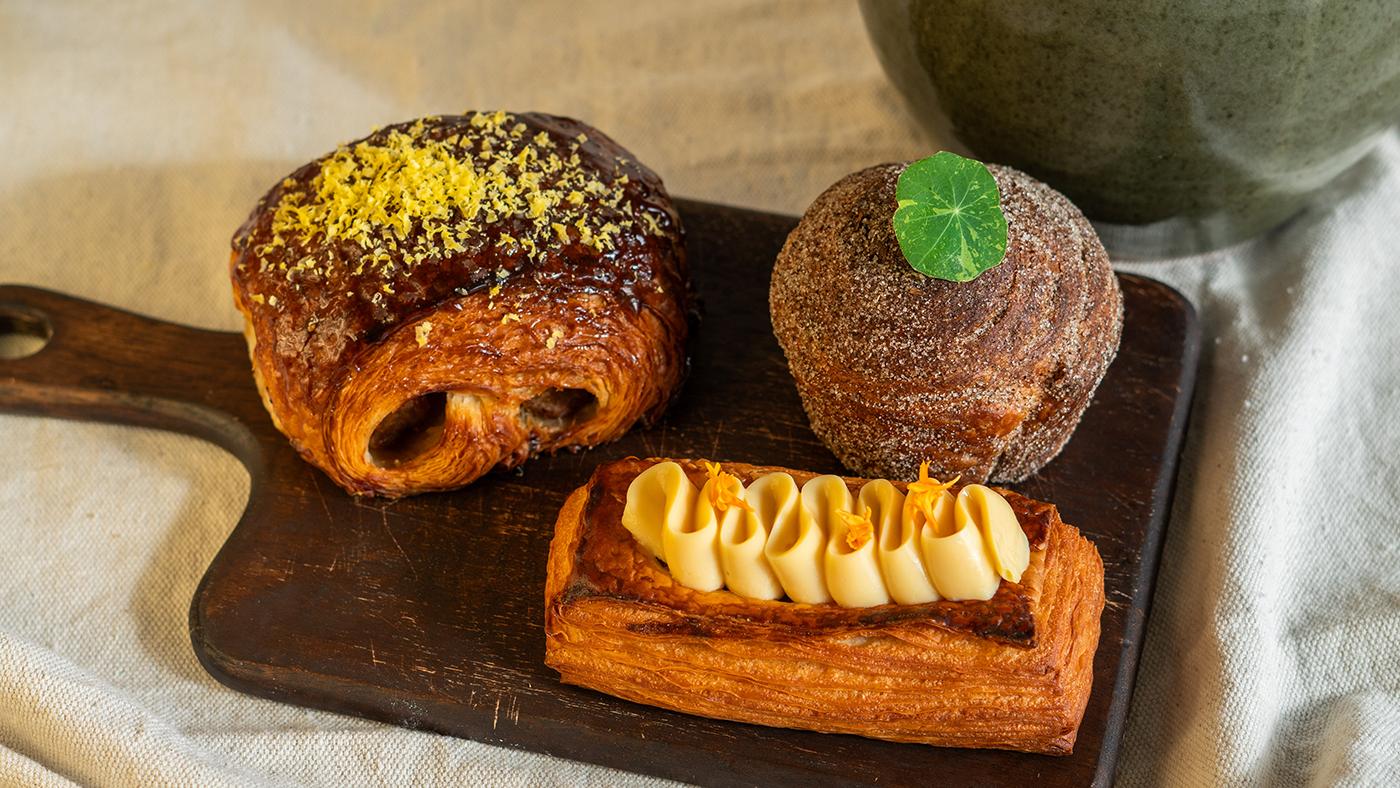A Comforting Indonesian Chicken Dish Perfect for a Bad Day
Daniel Hautzinger
May 18, 2022

When Don Reed came home to a kitchen full of food, he knew to ask if his wife Jane had had a trying day. “If I have a bad day, I cook,” says Jane. “A lot of women feel like, ‘Oh, I have to cook. What do I cook?’ I don’t. I just go in the kitchen and I look what I have and I make something. I just like to cook.”
Not that she only cooks when she’s upset; she loves cooking in general. It’s a passion she passed on to her son Chris Reed. “He was always in the kitchen with me. He would always watch what I was doing,” says Jane. So when he decided to start his own business after attending culinary school at Chicago’s Kendall College, he did so with his mother—and focused it on the unique cuisine she had grown up with.
Jane is Dutch-Indonesian, born in Indonesia and raised and educated in the Netherlands before moving to Germany with her family. It was in Germany that she met the Louisiana-born Don, through her father’s job with NATO. When she and Don moved to Chicago, “You couldn’t find any Indonesian stuff,” she says. People “didn’t even know Indonesian food.”
So she would cook for parties and fundraisers to introduce people to Indonesian food, having relatives ship or bring impossible-to-find ingredients from the Netherlands, where there is a substantial Indonesian population. Chris decided to turn those efforts into a business, and started Rice Table with Jane in 2008. They sold Indonesian food at festivals—including Pitchfork Music Festival, which was started by Chris’s brother Mike Reed—then expanded into catering and pop-up events. (Helpful family members are a theme: one of Jane’s brothers “does a lot with biology,” and has taught Chris how to make tempeh at home by fermenting soybeans with yeasts that the brother makes.)
The name “Rice Table” is an English version of rijsttafel, a multi-course Indonesian feast that was served primarily to Dutch colonizers in Indonesia and then brought back to the Netherlands by Indonesian cooks, according to Jane. “In Holland you can buy rijsttafel at any Indonesian restaurant, but for us it’s mostly when there’s a celebration,” she says. It also provides a way for people to try numerous Indonesian dishes at a pop-up event.
Eventually, Chris decided to begin incorporating Creole dishes into the business in honor of his father. Don had taught Jane how to cook Louisiana classics like gumbo and red beans and rice while they lived in Germany, and Chris eventually learned them as well.
To honor both sides of his culinary heritage, Chris changed the name of the business to Bumbu Roux: bumbu is Indonesian spices, and roux is the thickening base of many Creole dishes. He now offers both a Louisiana menu and Indonesian menu for catering, and also sells a few homemade Indonesian products such as sauces and pickles.
Bumbu Roux is an important celebration of Chris’s background, given the reception Jane and Don first received when they moved to Chicago in 1969 or so. “I hated it here,” Jane recalls. “I’m very Asian-looking and my husband was Black, so ’69, ’70 in Chicago was not a really good time to be here [for us]. I didn’t understand a thing about racism.” So they went back to live in Germany for a time before returning to Chicago.
Now, although many people remain unfamiliar with Indonesian food, they are much more open and curious. Jane always explains each dish at a rijsttafel event, and she and Chris like to hear feedback from people. Chris “loves it when people come back and say, ‘We really liked your food,’” Jane says.
Bumbu Roux briefly had a stall in the West Loop food hall Politan Row, but shifted to takeout and delivery during the COVID-19 pandemic and then eventually went back to catering and pop-ups as gatherings once again were permitted. Chris just bought a food truck and will be serving food at farmers’ markets over the summer from it, as well as at pop-ups at various other locations such as breweries.
Jane has mostly stepped back from day-to-day operations of the business, although she still helps Chris at events—and she still cooks Indonesian food at home “at least three times a week.” One dish she might make is ayam semur jahe, a simple braised chicken in a sweet soy sauce. “We grew up with this,” she explains. “My mom used to make it a lot.” It utilizes kecap manis, an ubiquitous Indonesian sweet soy sauce that Chris makes himself, although you can also buy it at the store.
Try Chris’s recipe for ayam semur jahe, adapted from Jane’s, which is adapted from her own mother’s. It might be the perfect thing to make the next time you have a bad day.
Ayam Semur Jahe (Indonesian Chicken in Sweet Soy Sauce with Ginger)
Ingredients
2 tbsps vegetable oil
1 medium onion, thinly sliced
2 cloves garlic, chopped
One 2-finger-length knob of ginger, peeled and thinly sliced
1 cup kecap manis (sweet soy sauce)
1/2 cup soy sauce
3 cups chicken broth
3 pounds boneless, skinless chicken thighs, cut into 1-inch cubes
1 tbsp ground cloves
Salt, to taste
White pepper, to taste
Directions
1. In a 6-quart pot, heat vegetable oil over medium heat. Sauté onion until translucent. Add garlic and sliced ginger and sauté until fragrant, approximately 30 seconds.
2. Add both soy sauces and chicken broth. Bring to a boil. Add chicken thighs and reduce to a simmer. Add ground cloves and season with salt and pepper to taste. Let simmer uncovered for 30 minute, until cooking liquid has reduced by about a quarter.
3. Serve with steamed white rice.







